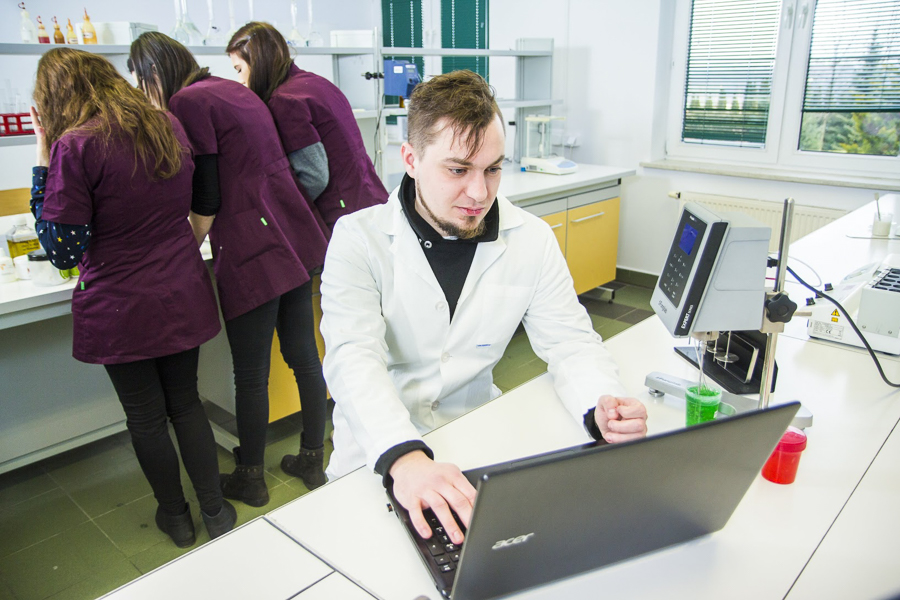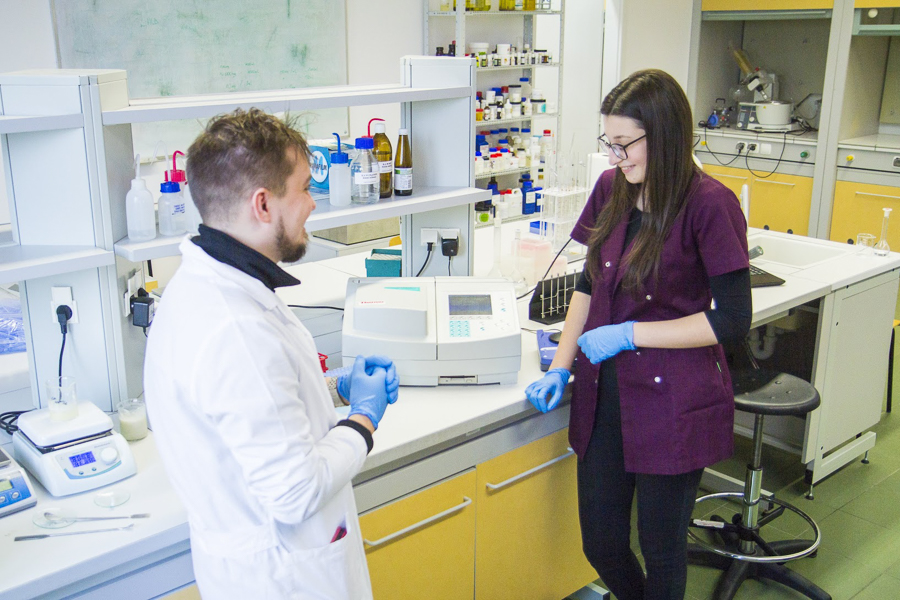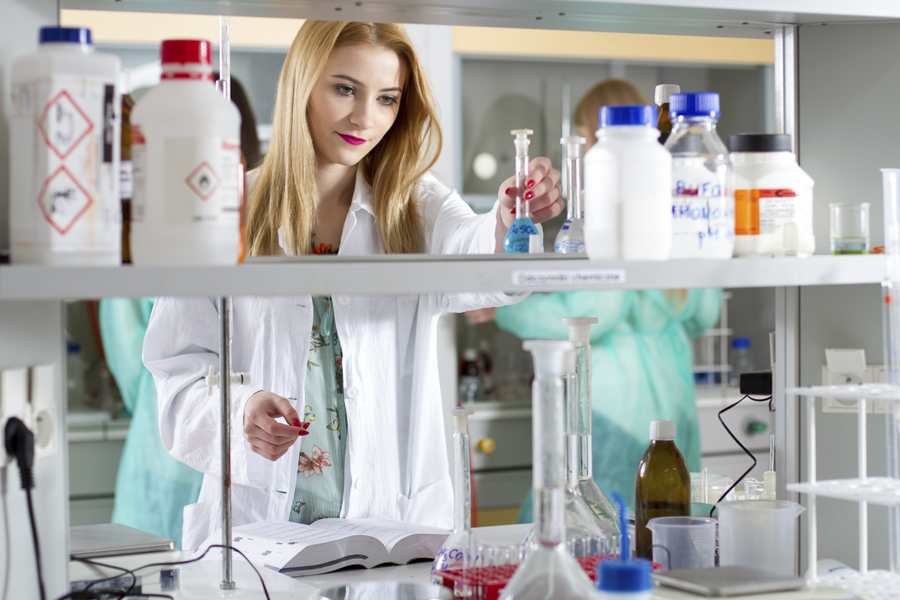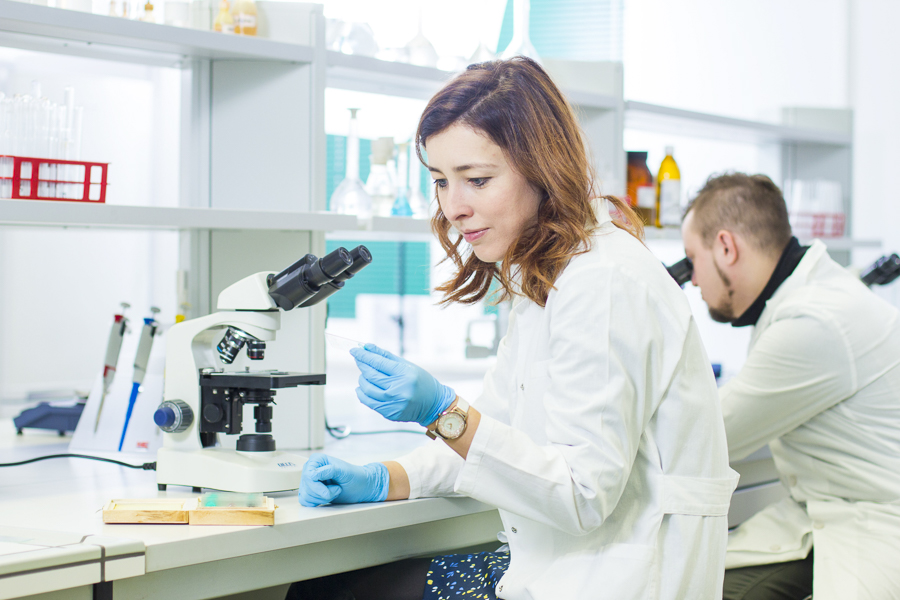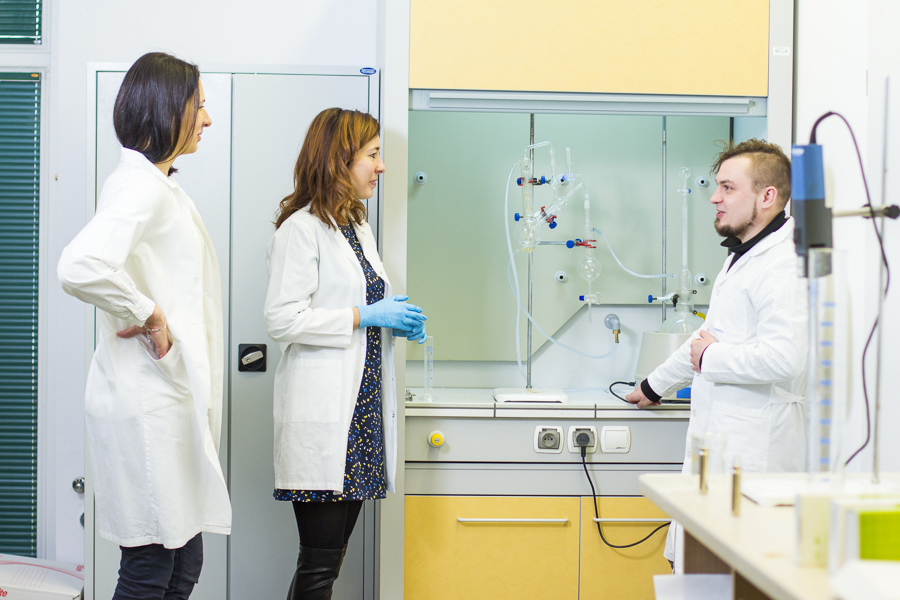Laboratory of Cosmetic Chemistry
The Laboratory of Cosmetic Chemistry was established to conduct didactic classes in the field of Cosmetology and Public Health and the research.
Serving scientists:
-The laboratory provides research on the acquisition of biologically active substances from plant raw materials and identifying and determining selected substances.
-The laboratory’s equipment facilities also enable the production of innovative cosmetics, determination of the application possibilities of the obtained substances and raw materials in cosmetic products, and comprehensive analysis of the quality of the obtained products.
Serving students:
-Students can research new cosmetic raw materials, design and create proprietary cosmetics recipes, and develop a technology to produce cosmetic products. For the obtained products, students have the opportunity to conduct a comprehensive quality assessment and determine the correlation between the composition of the product and the selected physicochemical and functional parameters of the products.
-The Cosmetic Chemistry Laboratory offers classes in the fields of Cosmetology, Public Health, and Dietetics in the following subjects: Cosmetic Chemistry, Cosmetic Recipe, Perfumery Technology, Perfumery Manufacturing and Analysis, Cosmetic Technology, Cosmetic Design, Chemical Analysis of Cosmetics, Cosmetic Analysis.
Serving companies:
The Cosmetic Chemistry Laboratory provides commercial services in the field of:
-developing recipes for cosmetics and household chemicals;
-tests of physicochemical and functional properties of cosmetics and household chemicals;
-testing the physicochemical properties of cosmetic raw materials;
-determination of the irritating potential of cleansing cosmetics;
-determining the effect of cosmetics on skin hydration (econometric test)
-tests of the level of secreted sebum (sabermetric test);
-testing the cooling and warming properties of the cosmetic on the skin (Thermo vision camera)
-testing (in-vitro) antioxidant properties of cosmetic formulation / cosmetic raw material
-testing (in-vitro) the anti-discoloration properties of a cosmetic/cosmetic raw material
-test (in-vitro) of anti-aging, anti-wrinkle properties of a cosmetic/cosmetic raw material
-testing the regenerating properties of a cosmetic/cosmetic raw material
-testing the cytotoxicity of a cosmetic/cosmetic raw material
Equipment:
-Positions for quantitative determinations with classical methods.
-Stands for formulation and preparation of cosmetics (emulsions, gels, washing cosmetics, solutions, solid forms), equipped with water baths, mechanical stirrers, magnetic stirrers and scales.
-Stand for homogenization of samples (IKA T18 Basic Homogenizer).
-Stand for measuring pH, conductivity and density of samples (pycnometers, pH-meter and conductometer CPS 411 Elmetron).
-Stand for testing the foaming properties by the Ross Miles method.
-Stand for measuring viscosity and rheological properties of cosmetics (FungiLab Expert rotational viscometer).
-Stand for testing the stability of cosmetics: thermal load test (incubator and laboratory cooler), mechanical load test (MPW 260R centrifuge), “pendulum” test.
-Stand for determining the irritating potential of cleansing cosmetics by measuring the zein number (Wagner-Parnas apparatus for protein content determination).
-Stand for determining the influence of cosmetics on the skin condition (Korneometer and sebumometer Courage + Khazaka electronic GmbH).
-Spectroscopic research stand (Aqua-Mate Thermo Scientific spectrophotometer).
-Stand for obtaining plant extracts by the batch and continuous method (Chemland OS20-PRO mechanical stirrer, Soxhlet apparatus).
-Stand for the production of essential oils by steam distillation (Deryg’s apparatus).
-The Cosmetic Chemistry Laboratory is also equipped with: rotary evaporator, UV Transiluminator, oil pump, N2 bottle.


